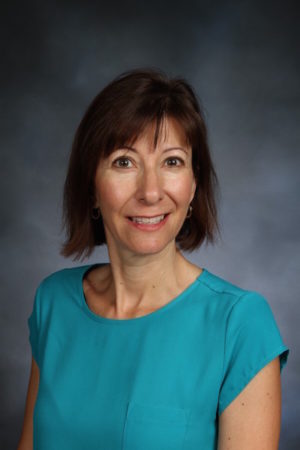Love and relationships: not just in Nicholas Sparks movies

Even though Valentine’s Day has passed, it’s never the wrong time to talk about love and relationships. What should you do when you like someone but don’t know how to voice your feelings? What is the right way to turn down someone when you don’t want to hurt their feelings? But before we ask ourselves these questions, it would be wise to consider Ms. Enciso’s new lessons on the Theology of the Body to prepare ourselves for relationships.
Ms. Enciso, a sophomore theology teacher, had two inspirations for her lesson on The Theology of the Body. First, she looked to Pope John Paul II’s collection of lectures called “The Theology of the Body.” In those lectures, he talked about the Church’s teachings on love and human sexuality, including the spiritual marriage between Jesus and the Church. Her other inspiration was her daughter, Sarah, a Xavier alum. She had Mr. Ahern as a theology teacher for two years, where she learned about “human sexuality, relationships, and the challenges and gifts of male/female relationships.” Before Ms. Enciso decided to create her lesson on the Theology of the Body, her daughter told her how she wished that she had more talks like that in all of her theology classes at Xavier so that she could be better prepared for college life and beyond. So, Ms. Enciso decided to do just that for her sophomore classes.
The core of the Theology of the Body is using Jesus as a role model for love. Jesus made the biggest sacrifice by dying on the cross for everybody’s sins because He loves everyone. Even though we can never really make a sacrifice to that extent, we can love others the best we can. However, according to Ms. Enciso’s lesson, we have to be careful how we express our love.
The Church teaches that there are benefits to staying celibate. In a hyper-sexualized society, teenagers can face a great pressure to be sexually active but it can have spiritual as well as mental and psychological side effects. Ms. Enciso supported this idea with the research of authorities on psychology and the human brain. Psychologist Erik Erikson says that the “period of adolescence as being is a period of intense exploration of personal values, beliefs and goals.” In other words, teenagers should consider taking the time to reflect on who they are and try to respect themselves before they are ready to become a part of someone else’s life as a significant other. If you don’t have a strong self identity, it may be difficult to know what you can offer someone else in a relationship. Additionally, brain disorder expert Dr. Daniel Amen, who wrote a book called Change Your Brain, Change Your Life, talks about how what people call “casual sex” doesn’t exist and can cause depression. Plus, women are more prone to emotional damage because of what is called the limbic system in the brain, “that is especially made to establish emotional bonds, even more so than the male brain.” Since it is more likely for women to make strong bonds, it is harder on them emotionally when those bonds are broken.
Ms. Enciso ended her lesson with some practical dating advice, such as how to express your affections to someone or how to politely and sensitively turn someone down. Afterwards, her classes watched the film A Walk to Remember which, according to her, showcases the important themes of “peer pressure, the need to develop oneself and real love being self-gift.”
In the end, we can all take these lessons even past high school or dating relationships. Taking the time to find out who you are and your potential can help you for the rest of your life.



